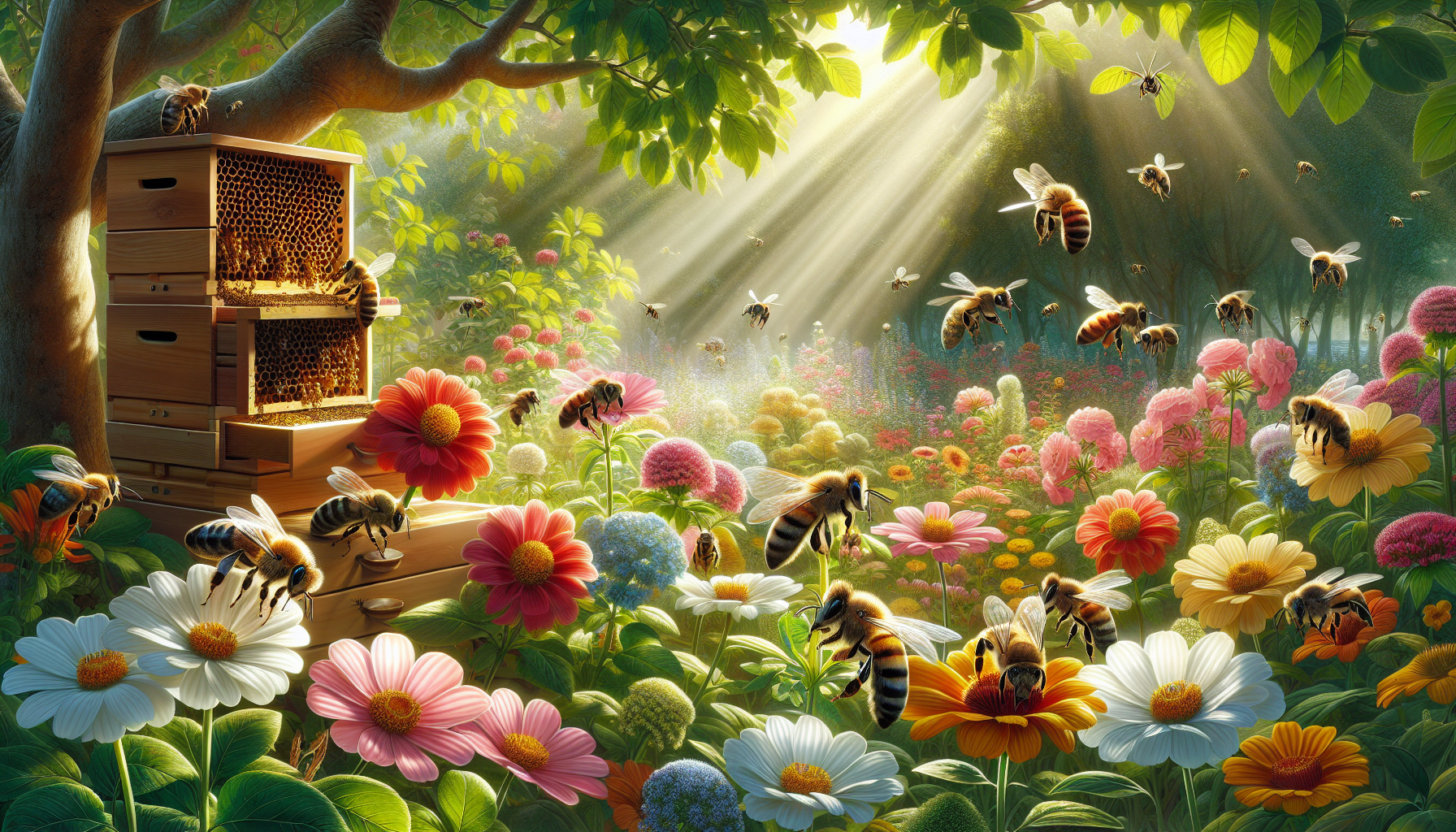Bees are among the most important creatures on Earth, playing a crucial role in maintaining the health and diversity of our ecosystem. While their dynamic foraging for nectar may appear as a simple aspect of nature’s tableau, it has far-reaching impacts on agriculture, the environment, and human society. In recent years, the decline in bee populations worldwide has drawn attention to their significance and the necessity of their protection.
Pollination Powerhouses
Bees are considered super pollinators. As they move from flower to flower, collecting nectar and pollen for food, they inadvertently transfer pollen from the male parts of flowers to the female parts. This process of pollination is essential for the reproduction of many plants.
Vital to Biodiversity
The biodiversity of our ecosystems heavily relies on the work of bees. Many plants need insect pollination to bear fruit or seeds, and bees are among the most effective pollinators due to their abundance and pollination habits. This biodiversity, in turn, supports a wide range of other wildlife, including mammals, birds, and other insects, creating a robust and resilient ecosystem.
Agriculture’s Little Helpers
The agricultural industry is particularly indebted to the tireless labor of bees. An estimated one-third of the daily food relies on pollination, mainly by bees. They are essential in producing crops like apples, berries, melons, and almonds, to name a few. Without them, crop yields would significantly diminish, and the variety of foods available would be reduced considerably.
Economic Impact
The economic contributions of bees are staggering. In the United States alone, honeybees’ pollination services are valued at over $15 billion annually. Globally, the value soars to hundreds of billions. This economic impact is reflected in the production of fruits, nuts, and vegetables and in the meat and dairy industries since bees pollinate forage crops like clover and alfalfa used to feed livestock.
Support for Rural Communities
In many rural communities worldwide, beekeeping is an essential source of income. Honey and other bee products like beeswax are culturally and economically important. Furthermore, beekeeping can often be practiced in areas unsuitable for other forms of agriculture, thereby making it a crucial stabilizing force for the livelihoods of these communities.
Ecosystem Health Indicators
Bees are considered sentinel species, meaning their presence, absence, or well-being in an environment indicates the ecosystem’s health. They quickly respond to changes in their environment, making them perfect bioindicators. A decline in bee populations often points to broader environmental problems, such as habitat loss, climate change, pollution, pesticides, and other chemicals detrimental to their health.
Biodiversity and Resilience
Diverse bee populations contribute to the overall resiliency of ecosystems. When an environment is filled with different species of bees, it is better equipped to withstand disturbances such as extreme weather events or disease outbreaks. The diversity in bee species is crucial, as some are suited to pollinate specific plants, ensuring the survival of plant species that might otherwise become endangered.
The Crisis of Declining Bee Populations
The alarming rate at which bee populations are declining globally has caused concern among scientists, farmers, and environmentalists. This phenomenon, called Colony Collapse Disorder (CCD), is a complex issue with multiple contributing factors. These include using neonicotinoid pesticides, which can be lethal to bees, habitat destruction, limiting their food sources, and the rise of pests and diseases targeting bees.
Mobilizing for Protection and Recovery
In response to the decline, initiatives to protect bee populations have taken shape. Organizations worldwide are advocating for the reduction of harmful pesticides and the conservation of natural habitats. Additionally, efforts to promote bee-friendly practices among farmers and gardeners are becoming more widespread, including planting pollinator-friendly plants and providing habitats like bee hotels.
Conclusion
In conclusion, bees are a linchpin species in our ecosystems, with their role as pollinators having vast implications for biodiversity, agriculture, and the economy. The health of bee populations reflects the overall health of the environment. As they face threats from human activity, we must take action to ensure their survival and, by extension, the well-being of our ecosystems. Protecting bees is not just about preserving a single species but about maintaining the life balance on which all species—including humans—depend. Recognizing the importance of bees is the first step toward safeguarding their future and, in turn, our own.

